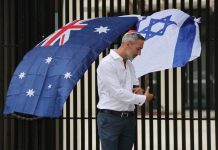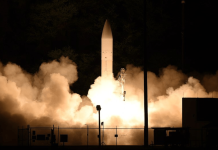Is the ASEAN bloc caught in a tug-of-war between arch-rivals US and China over the military coup in Myanmar?
The UN Security Council’s approval of the ASEAN’s “five-point consensus” on Myanmar last week happened only after giving concessions to China and Russia. This shows how ASEAN itself has been caught between the diverging goals of Washington and Beijing.
Since the February 1 military coup in Myanmar, the Association of Southeast Asian Nations (ASEAN), a bloc known for its apolitical stand, has been forced to weigh in with contrasting American and Chinese pressure pushing from different directions.
The five-point consensus, as agreed upon by ASEAN leaders last week during a meeting held in Jakarta, calls for an immediate cessation of violence with all parties exercising restraint; constructive dialogue among the parties for a peaceful solution in the interests of the people; mediation facilitated by a special envoy of the ASEAN Chair with the assistance of the Secretary-General of ASEAN; humanitarian assistance by ASEAN through the AHA Centre; and a visit to Myanmar by the special envoy and delegation to meet all parties concerned.
Indonesia’s President Joko Widodo went a step further and called for the release of all political prisoners but this stipulation did not make it to the final draft of the ASEAN consensus.
The ASEAN move was slammed by activists and political observers in Myanmar who believe this would only cater to the military junta and has no meaning for the people of the Southeast Asian nation.
Most of what is included in the consensus won’t translate to action either, according to Nikkei Asia. The statements do not contain any details on how to follow through with the consensus nor a potential time framework. But it could also be argued that such particulars will take time. A written political consensus by ASEAN which has been agreed upon by the UNSC is in itself a breakthrough.
Members of the Myanmar Students Coalition British Columbia (MSCBC) and others in Vancouver, Canada staged a protest joining the global movement to support #Myanmar's National Unity Government and honor those killed by the junta.
(Photo: Global Myanmar Spring Revolution) pic.twitter.com/MMzWRfGCYG— The Irrawaddy (Eng) (@IrrawaddyNews) May 3, 2021
At China’s request, the UNSC has removed clauses that said it “once again strongly condemned violence against peaceful protestors” and “reiterated their call on the military to exercise utmost restraint.” Indian news portal WION has referred to this action as watering down while quoting a diplomat who stated that “what we must avoid is losing council unity to the point of making it irrelevant”.
But without China’s acquiescence, a change in Myanmar is unlikely. The Eurasian Times had previously reported on China’s importance as outlined by many experts. China’s military ties and investment in Myanmar can make the latter agree to the former’s demands. Neither ASEAN nor the US has this kind of a pull with the junta.
Thus, it is necessary for China to be included in the international effort to bring peace to Myanmar even if adjustments have to be made in line with Chinese demands. The West’s one-sided demands to sanction Myanmar have not floated through UNSC. All four statements released by the UNSC after the Myanmar coup had to be modified under Chinese pressure.
The UNSC statement also called for the UN Special Envoy to Myanmar, Christine Schraner Burgener, to be allowed to visit Myanmar “as soon as possible,” something which has been denied by the junta till now.
What all international parties can agree to is an end to violence. Small incremental steps probably will have to be taken from this point.
During the Cold War, ASEAN had firmly positioned itself within the American camp. But one with China involved would make the decision harder.
The US framing of the conflict with China as one between democracy and autocracy would make it harder for ASEAN states, who at best probably can be called flawed democracies, to ally with the American side.
Already, ASEAN has faced a backlash for inviting the junta’s head, Gen. Min Aung Hlaing for the meeting and not allowing representation from the overthrown civilian government.
Meanwhile, the National Unity Government (NUG), formed by the elected lawmakers to counter the military regime has criticized the ASEAN’s five-point consensus on Myanmar. In an interview with The Irrawaddy, NUG ‘foreign minister’ Daw Zin Mar Aung said that NUG did not have any expectations from ASEAN.
“We have sent back the NUG’s statement on the summit to ASEAN. ASEAN must design accountability mechanisms to handle when the ASEAN Charter and decisions reached at meetings are not followed,” she added.
The Myanmar armed forces, also called Tatmadaw, have continued to their country-wide brutal crackdown on civilians. As of May 2, at least 764 people have been killed and over 3,500 detained since the February 1 coup.




